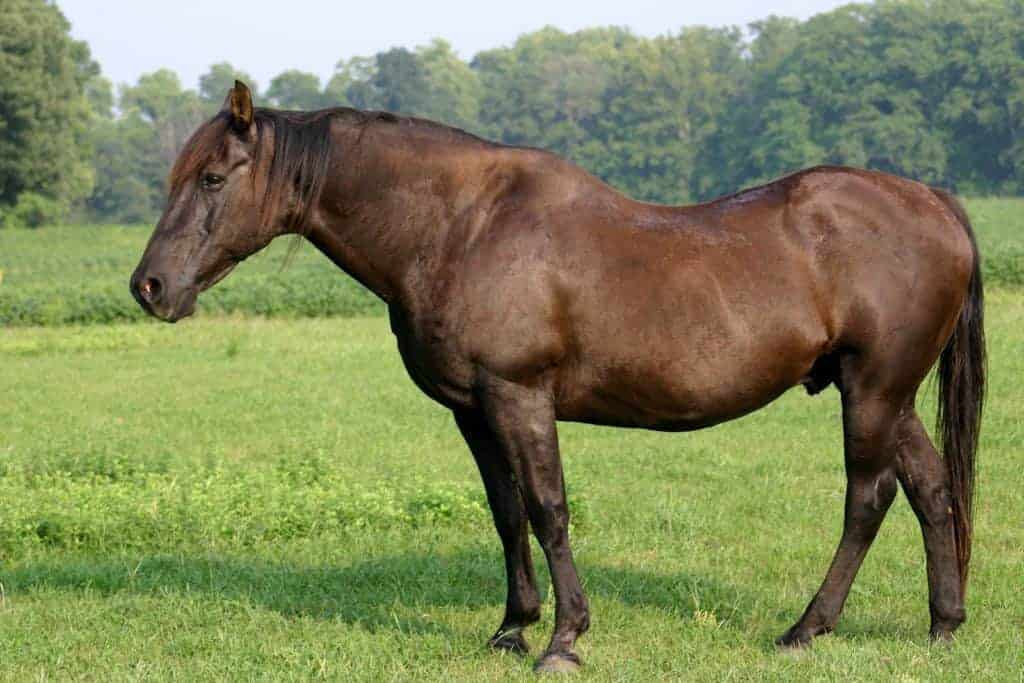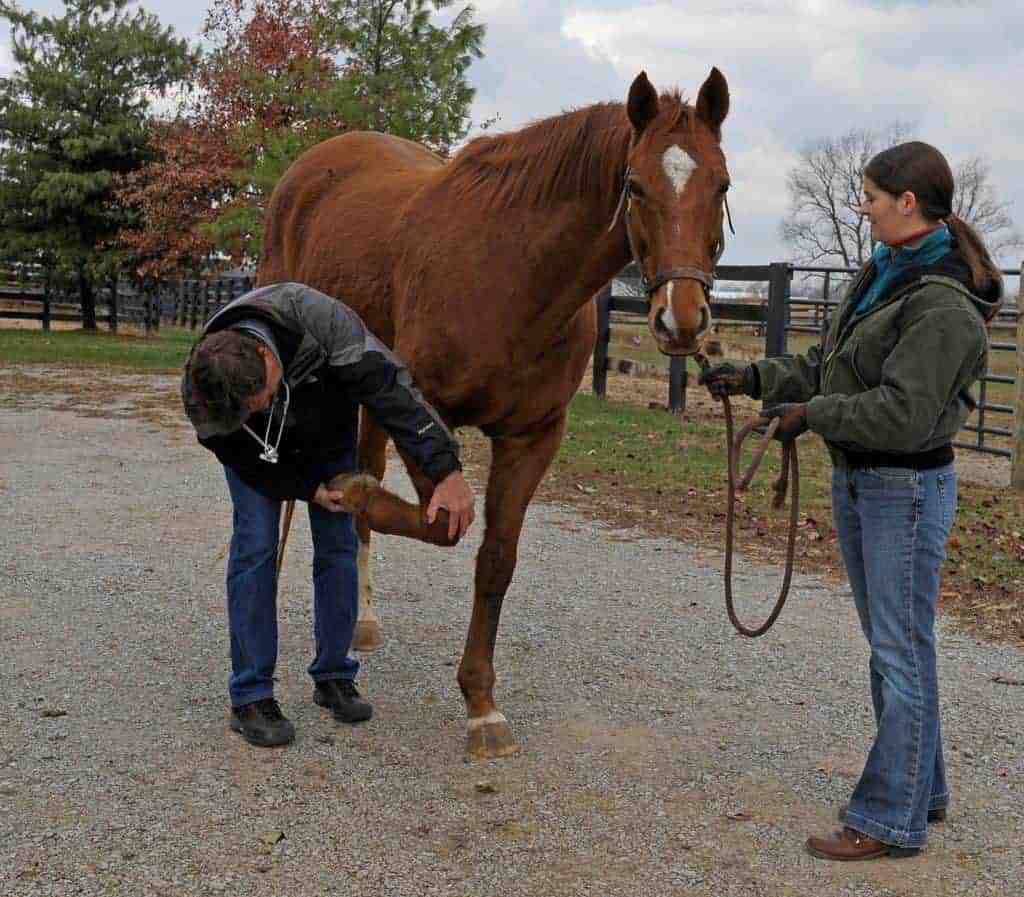
Keeping the Aging Horse Comfortable
Here’s how to manage senior horses’ aging teeth, joints, lungs, and more.
Information on pituitary pars intermedia dysfunction (PPID), also known as Cushing’s Disease in horses.

Here’s how to manage senior horses’ aging teeth, joints, lungs, and more.

Can horses with PPID be turned out on pasture and have grass? It depends, one researcher says. Here’s why.

Laminitis is one of the most common diseases in horses, and it has many different causes. Find answers to listener questions on endocrine-related laminitis in horses with conditions such as PPID, equine metabolic syndrome, and insulin resistance. Sponsored by InsulinWise.

Dr. Teresa Burns describes what laminitis is and its relationship to endocrine diseases such as insulin resistance, equine metabolic syndrome, and PPID.

Managing horses with PPID is an ongoing commitment and requires careful veterinary observation. By monitoring both clinical signs and endocrine values, many affected horses can return to athletic function and/or maintain a good quality of life.

Many factors affect your horse’s ability to mount an effective immune response, one of which is his age. Learn more about the horse’s immune system and how it functions at every stage of his life.

Dr. Liz Arbittier encourages owners and caretakers of senior horses to call their vet if they notice any changes in health or behavior, even when it seems minor, to identify issues and begin treatment early. Here’s what to watch for.

The older equine population is at greater risk of developing debilitating endocrine disorders such as insulin dysregulation and equine metabolic syndrome, all of which are best identified and treated as early as possible.

Researchers found that both basal and post-oral-sugar-test insulin responses vary across seasons in horses with insulin dysregulation.

Listen to audio features on equine metabolic issues, colic, hoof abscesses, parasite control, navicular syndrome, and more.

Researchers recently identified six PPID cases in two equine species at a British zoo: five cases in Przewalski’s horses ranging from 7 to 29 years old and one case in a 17-year-old Chapman’s zebra.

While researchers have discovered much about EMS over the years, there’s still more to learn not only about the link between obesity, insulin, and laminitis but also how to manage animals to help prevent them from becoming obese and/or developing insulin dysregulation.

Effective Dec. 1, horses granted a therapeutic use exemption can remain on pergolide with no drug withdrawal prior to competition and no need to file a medication report form each time they compete.

How to unravel the reason behind your horse’s head-scratching weight loss.

A vet weighs in on what might cause a well-conformed senior mare to become over at the knee and fall during a ride.

Researchers determined that horses with preclinical PPID (that is, blood values suggestive of PPID but aren’t yet showing clinical signs of disease) did not have higher fecal egg counts than healthy horses.
Stay on top of the most recent Horse Health news with
"*" indicates required fields